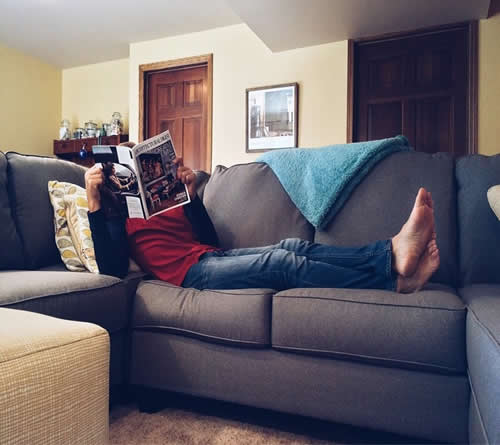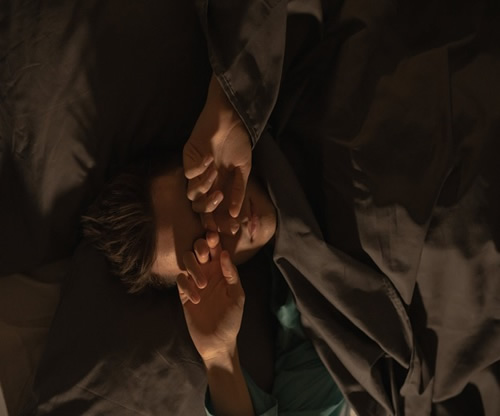Positive Health Online
Your Country

5 Tips To Beat Insomnia and Sleep Better
listed in sleep and insomnia, originally published in issue 277 - March 2022
Insomnia is one of the most insidious disorders, impacting one’s physical health, mental health, and cognitive ability. Some people who struggle with insomnia lack the ability to fall asleep, while others wake up during the late-night hours and can't get back to sleep. Either way, it can have a detrimental impact on their lives.
There's no one-size-fits-all approach for fixing insomnia, as it manifests differently for everyone. However, there are several actionable steps you can take to help fight back and get some much-needed rest.

Photo credit Pexels
Here are five tips to beat insomnia
Use Wearable Health Technology
Wearable health technology has become a staple in many people's everyday lives. These devices can do everything from tracking steps to measuring heart rate and even monitoring menstrual cycles. If you're struggling with insomnia, a simple fitness tracker should help you identify when your sleep cycle is becoming disrupted as a starting point for corrective action.
Some wearable devices also send signals to your body that it's time to rest. Some great advice from Hapbee is to create an insomnia plan that helps train your body into relaxing and unwinding at bedtime. This plan could include setting time limits on restlessness before getting back up (ideally 20 to 30 minutes) or doing something restful, such as reading or listening to music in a comfortable chair.
Using this method, in combination with wearable tech, can help you train the body to unwind and prevent tossing and turning in the middle of the night.
Unplug from Screens
Constant connectivity is one of the most significant downfalls of our natural sleep signals. The blue lights from screens potentially impact the body's natural rhythms, mimicking artificial daylight hours that trick our bodies into staying awake. If you've ever used exposure to daylight to trick your body out of jet lag, this strategy should come as no surprise.
When we use screens, our minds are also actively engaged in what's going on, whether it's watching videos or texting friends. Set a boundary to unplug from your electronics at least an hour before bed, putting your phone on silent and placing it across the room. Doing so will also force you to get up and snooze your alarm, making it easier to get up in the morning.

Photo credit: Pexels
Create a Dark and Cool Sleep Environment
As advanced as we've become, our bodies are still primordial in many ways. One of those ways is our preferred sleep environment. Keep in mind that what you believe are your sleep preferences (i.e., a warm, soft bed and a night light) may be very different from what your instinctual mind and body want.
Humans actually sleep best in cooler rooms with no external light or sounds. Consider using blackout curtains, programming your thermostat for a few degrees cooler at night (this will also save you money), and running a fan or noise machine. Try this for two or three weeks to give your body time to adjust.
Practise Stress Management
If you find yourself kept up at night by intrusive thoughts or anxiety, the root of your insomnia is probably stress. Yes, you, who wakes up at 3:00 a.m. wondering where your passport is or if you filed your taxes right four years ago.
Practise breaking negative thought patterns to prevent yourself from worrying about things that haven't happened yet – for example, tomorrow's to-do list or an upcoming project. When you notice these thought patterns, stop them and tell yourself, "This is out of my control and should not impact my sleep tonight." Continue this process for as long as it takes.
Practising mindfulness and stress management tactics throughout the day helps as well, to train your mind to unwind and relax at bedtime.
Eliminate Stimulants
Finally, consider eliminating stimulants. Many people get into a vicious cycle of using caffeine to make up for poor sleep, only to have their sleep impacted by too much caffeine. Similarly, those who use alcohol to try and sleep may find success in falling asleep, but experience extreme levels of cycle disruption over time.
Consider cutting back on stimulants or eliminating them entirely for a period of two to three weeks to see how it impacts your sleep cycles.
Try using a combination of these tips to help you combat insomnia and get better sleep. Remember to track what you are trying, and make data-driven decisions in your battle against insomnia.
Comments:
-
No Article Comments available